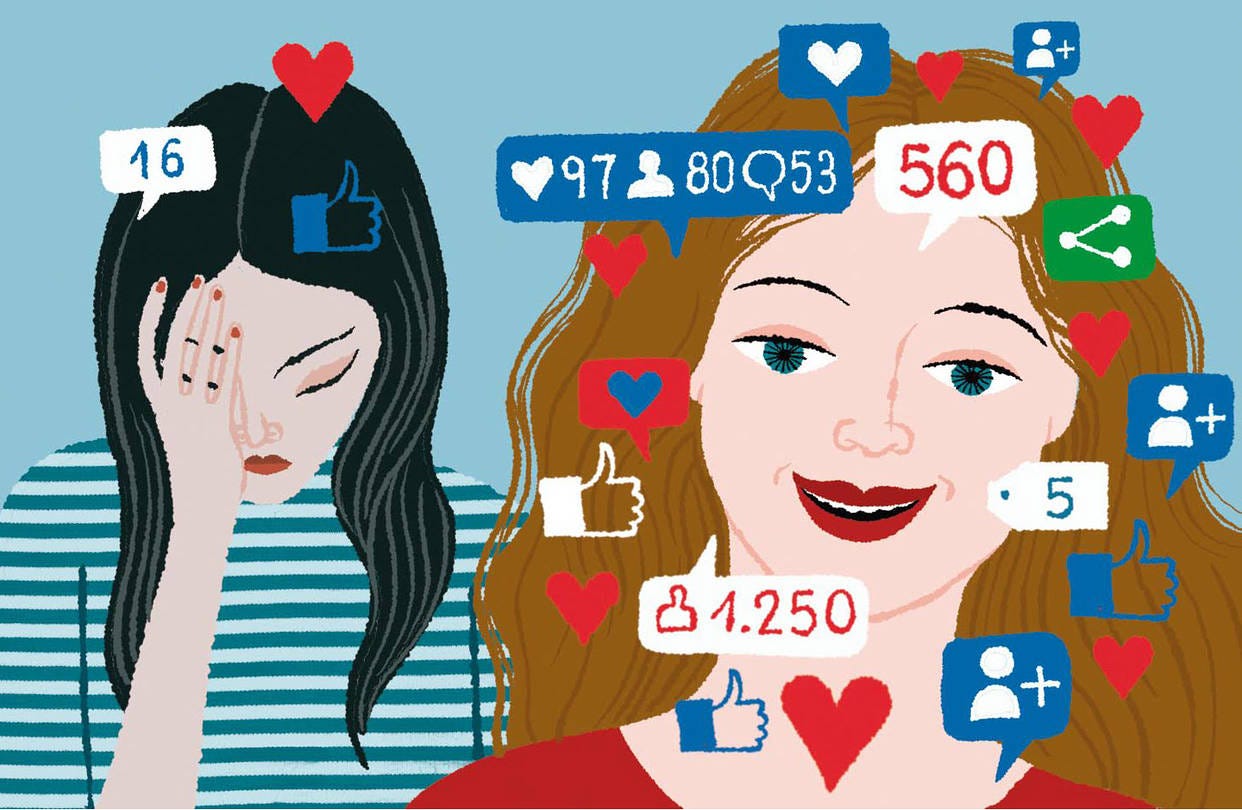There are many benefits to social media: easy contact with friends and family, opportunities to join groups with similar interests, and a platform to advertise and grow a business, to name a few. But if left unchecked, the expectation of perfection which social media creates can leave users feeling inadequate and becoming envious of others (Wu & Srite, 2021). Part of the draw of social media platforms is the ability to curate the image one presents to the world. Carefully crafted posts highlighting only positive experiences an make the user's life look perfect, affecting the expectations of viewers. This comparison can instill a desire for their life to be perfect, too, but since no one's life is actually perfect, they fake it for social media, and the the cycle continues. As they say, comparison is the thief of joy.
The prevalence of social media usage in society - 72% of American adults are on at least one social media site (Pew Research Center, 2021) - has turned the activity into a powerful social norm. Unlike individual addictions, social norms imply an acceptance by society as a whole. Social media has become a staple in our lives, for better or worse, and we accept that it is a powerful tool that also comes with drawbacks. One of the most significant drawbacks is the effect that social media can have on the mental health of adolescents, especially girls, resulting in higher rates of "depression, anxiety, loneliness, dissatisfaction with life, self-harm, suicide attempts, and suicides" (Twenge et al., 2022, p. 1). Clearly, the damage caused by comparing one another via social media can be severe, so it is important to develop healthy habits when it comes to screen time, including parents discussing the dangers of social media with their children.
Reference:
Twenge, J. M., Haidt, J., Lozano, J., & Cummins, K. M.
(2022, April). Specification curve analysis shows that social media use is
linked to poor mental health, especially among girls. Acta Psychologica, 224,
1-11. https://doi.org/10.1016/j.actpsy.2022.103512
Wu, J., and Srite, M. (2021, February). Envy on social media: The good, the bad and the ugly. International Journal of Information Management, 56, 1-16. https://doi.org/10.1016/j.ijinfomgt.2020.102255

Comments
Post a Comment